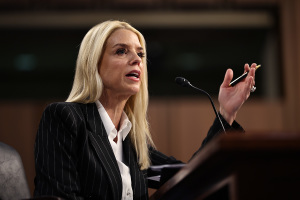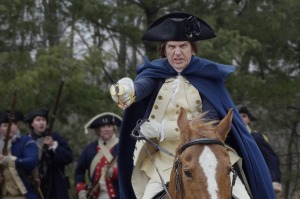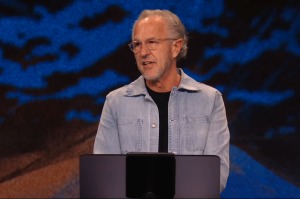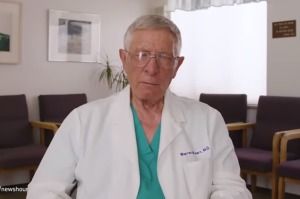Methodists, Anglicans Face Gay Dilemma in Britain
Ministers could adapt a liturgy for the blessing of a heterosexual couple in civil marriage, to also bless the civil partnerships of gay couples.
In the midst of the crisis over homosexuality in the Anglican Communion, the Methodist Church of Great Britain, as a close ecumenical partner of the Church of England, will face up to the challenge in their annual general meeting next month in the Riviera Centre, Torquay from Thursday 23rd June to Thursday 30th June.
Earlier this week, the Methodist Church released a report to the 2005 Methodist Conference. It is basically a review of the "Pilgrimage of Faith" report first adopted at the 1993 Methodist Conference at Derby which concluded the viewpoint of the Church on human sexuality in six points.
The 2005 report is the result of a 2 year consultation with ministers in the church that commenced in 2003. It shows that the Methodist Church wishes to maintain itself as an open, welcoming and inclusive body which will not turn people away because of their sexual orientation.
On the other hand, as the consultation became deeper, other complicated dilemmas were found. There are disagreements on how the Church should respond to sexually active homosexuals while it holds marriage and chastity outside marriage as its ideals.
According to the Times newspaper, the draft suggested that some Methodists believe that full inclusion of sexually active homosexuals is unacceptable, but others "are moving towards allowing the full inclusion of sexually active lesbians and gay men in stable and committed relationships, whilst not necessarily believing that same-sex sexual activity is what God intends".
The Civil Partnership Bill, which was passed by Parliament last year, will give homosexuals controversial official legal status. Starting on 5th December 2005, gay couples in Britain will be allowed to form legally binding partnerships and enjoy tax and pension rights similar to that of married heterosexual couples.
Therefore, the report to the Methodist Conference 2005 recommended a discussion "on how to respond to requests to conduct prayers or services of blessing for same-sex couples, particularly in the light of recent legislation on civil partnerships."
It was also suggested that if the conference is approved, ministers could adapt a liturgy for the blessing of a heterosexual couple in civil marriage, to also bless the civil partnerships of gay couples.
Another dilemma was highlighted - the ordination or ministry of homosexual clergy, whether those who have kept celibacy or not. A potential schism has been brewing in many major Protestant denominations in the world over this issue.
The 77-million strong Anglican Communion has experienced a painful rift between the conservatives and liberals of the Church since the US Episcopal Church (ECUSA) consecrated the openly homosexual bishop Gene Robinson. A proposal seeking to accept non-celibate homosexual ministers is underway in the Evangelical Lutheran Church of America (ELCA) and has provoked severe debate.
Nevertheless, the Methodist Church 2005 report recommends continuing the Church’s doctrinal and disciplinary standards for the ordained ministry, indicating that Methodists will not go as far as American Anglicans in ordaining men and women in gay relationships, according to the Times newspaper.
All these issues are not only influential to the Methodist Church itself, but also are significant to the future of the ecumenical relationship with the Anglican Church.
The Church of England and the Methodists recently signed a "covenant" agreement and the two churches are moving slowly towards unity. While many say that the Anglicans have seemingly tended to adopt an increasing liberal stance over the sexuality issues, the increasing unity between Anglicans and Methodists could be affected if the Methodists cannot agree with these values.
Rev Jonathan Kerry, convener of the working party on the human sexuality issue and the Church’s secretary for worship and learning, said, "Conference will have to decide what to do. These are the issues we need to face up to."
The Methodist Church is the third largest Christian Church in England after the Anglican and Roman Catholic Churches. There are around 6,100 Methodist churches in Britain with almost 300,000 full members. It was founded by John and Charles Wesley in England in the 18th century.





























